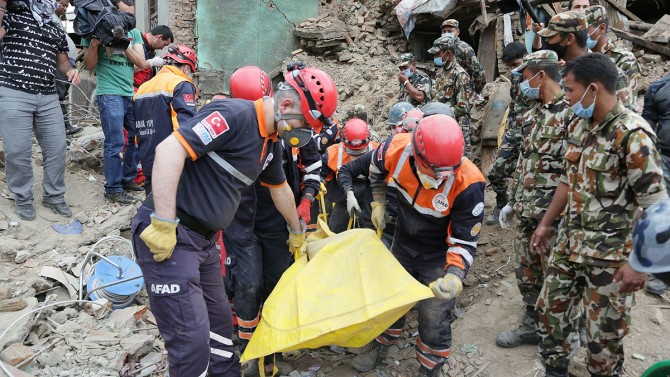New working group on disasters launches with March 14 talk
By Jonathan Miller
The Mario Einaudi Center for International Studies will launch a cross-college working group on disasters with a public presentation, “The Social Construction of Disasters: Identifying Root Causes and Risk Drivers” by anthropologist Anthony Oliver-Smith March 14 at 2:30 p.m. in 102 Mann Library.
Oliver-Smith is an emeritus professor of anthropology at the University of Florida who has worked on issues surrounding disasters and involuntary resettlement in Peru, Honduras, India, Brazil, Jamaica, Mexico, Japan and the United States.
His research interests include the role of class, race, ethnicity and gender in the distribution of post-disaster aid, and the social dynamics of community-based reconstruction efforts. Among his books are “Defying Displacement, Catastrophe and Culture” and “Involuntary Migration and Resettlement.”
Sharon Tennyson, professor of policy analysis and management, said a talk by Oliver-Smith was a fitting way to inaugurate the Working Group on Disasters. The group, which Tennyson coordinates, aims to foster greater awareness, collaboration and research activity among social and behavioral scientists at Cornell and around the world on the challenges of disaster preparedness, recovery and resilience.
The group received a working group grant from the Einaudi Center last year. In addition to Tennyson, members of the steering committee are Shorna Allred (natural resources), Ying Hua (design and environmental analysis), Linda Shi (city and regional planning), Richard Stedman (natural resources), Keith Tidball (Cornell Cooperative Extension) and John Zinda (development sociology).
The goals of the group include developing new courses, hosting workshops and speakers, creating opportunities for engaged learning and building a robust research network.
“This is a golden opportunity to unite researchers across the campus in applied social science, engineering and physical and natural sciences to address one of the most important challenges worldwide,” said Thomas D. O’Rourke, the Thomas R. Briggs Professor of Engineering in the School of Civil and Environmental Engineering.
Tennyson notes that a growing global population has exposed more people and more infrastructure to the potentially catastrophic effects of extreme events such as earthquakes, tsunamis, landslides and storms. At the same time, the events themselves are becoming more severe. Three of the six largest earthquakes ever recorded have come since 2004. So have the four costliest storms in U.S. history.
“Disaster risk and recovery always have social, cultural and political dimensions,” Tennyson said. “Our hope as a group is that we can develop new frameworks and approaches to enhance preparedness and resilience in both public and private practice, particularly in poor and marginalized communities.”
Cornell faculty members who would like to be involved can email Tennyson.
Through its working groups initiative, the Einaudi Center brings together multidisciplinary teams of scholars working collaboratively on global issues. Of special interest are issues that are normally considered technical, but where the stakes for ordinary citizens are high, and where nontechnical perspectives are critically important.
The center provides intellectual, administrative and technical support, as well as funding for visiting scholars, postdoctoral fellows, graduate student assistants, outside speakers and group activities.
Jonathan Miller is associate director for communications at the Einaudi Center.
Media Contact
Get Cornell news delivered right to your inbox.
Subscribe

